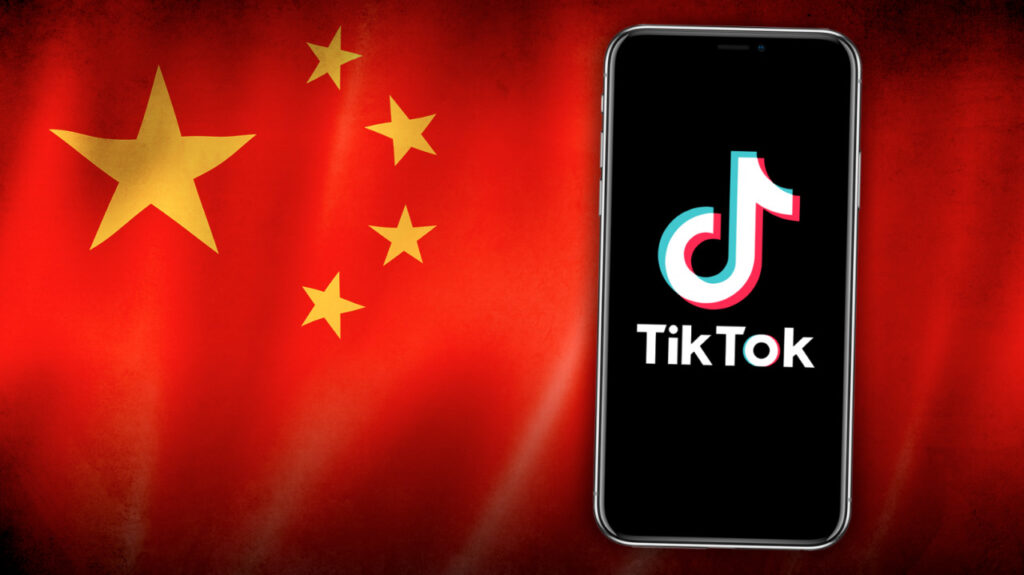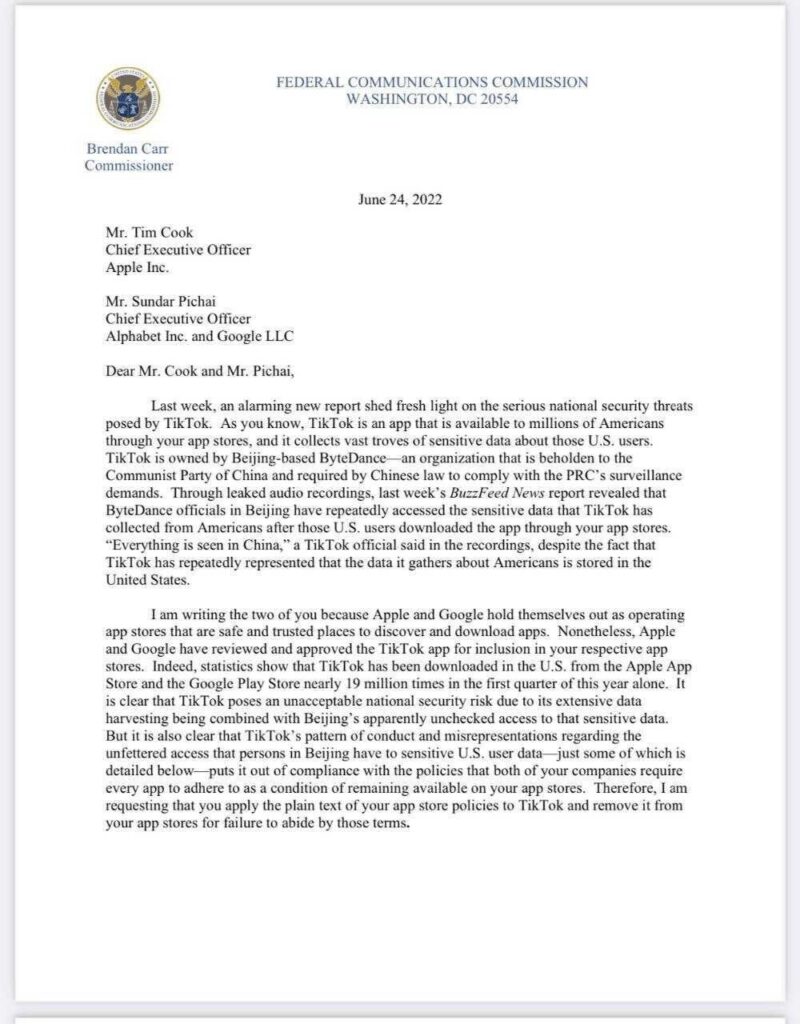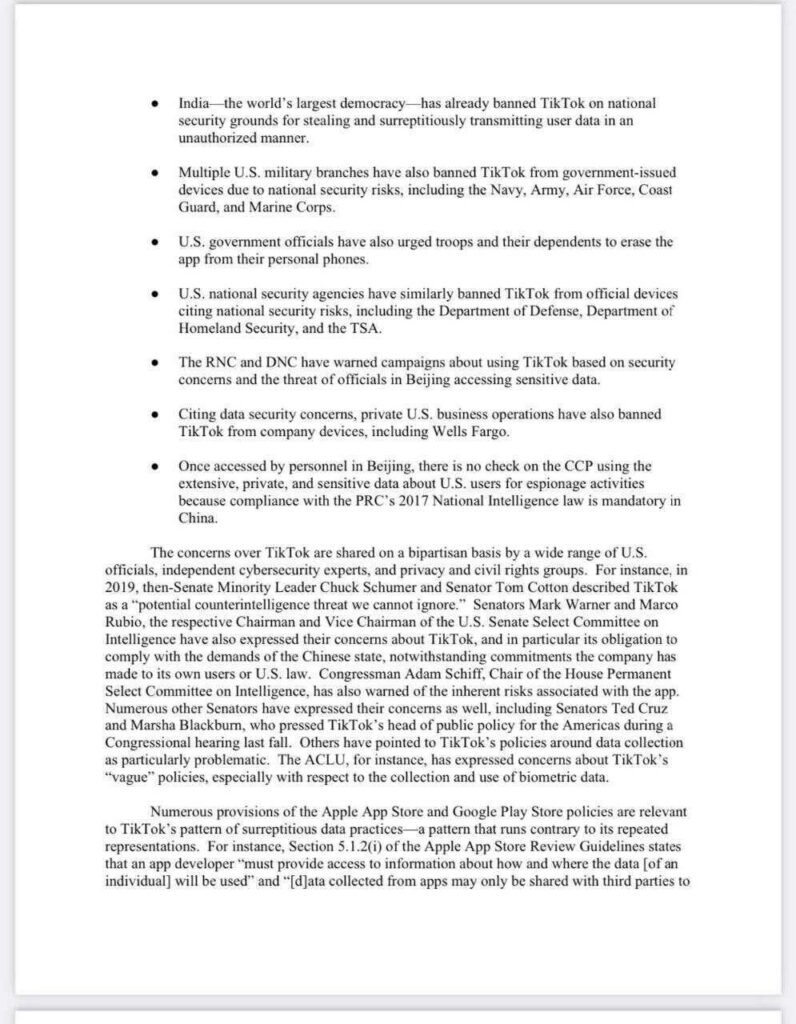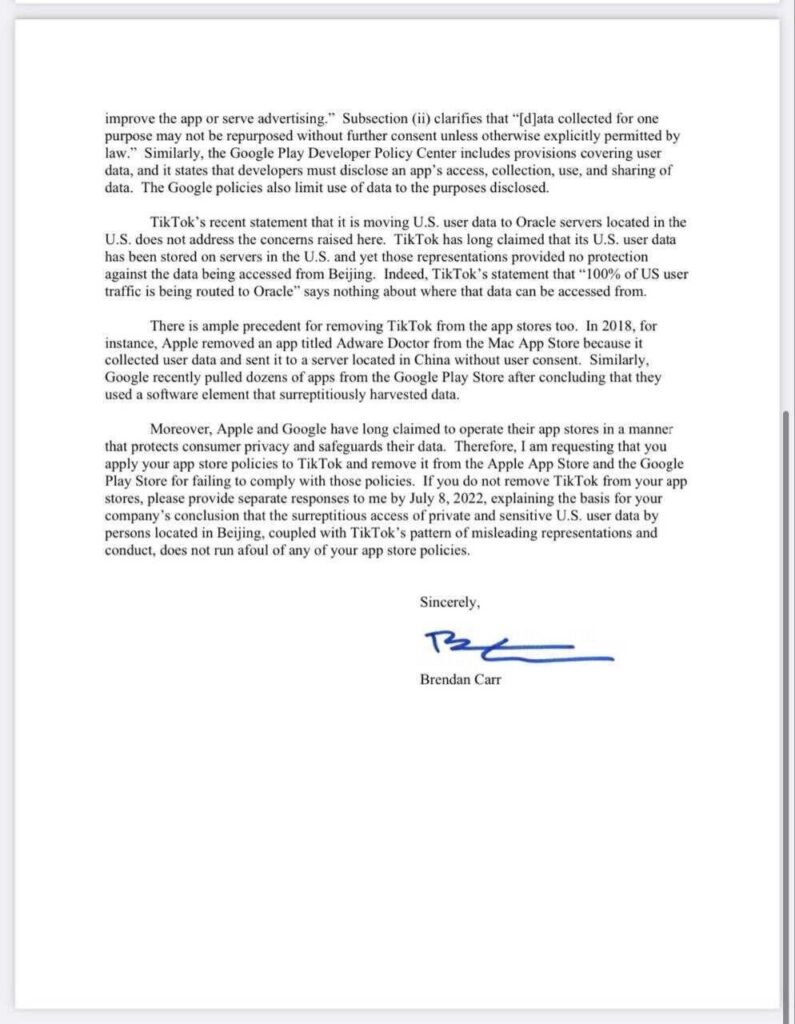
How did we get here?
In 2020, President Donald Trump signed an executive order to begin the process of banning TikTok.
On June 25th, 2021, CNBC reported that Chinese parent company ByteDance tightly controls the social media company. According to former employees, the company’s Beijing-based ByteDance executives were heavily involved in TikTok’s decision-making. At the time of the article, cybersecurity leaders felt worrisome that the CCP could use TikTok to spread propaganda or censorship to the American audience. They were also concerned about their ability to influence users by blackmailing them over distasteful posts.
TikTok launched globally in 2017. ByteDance, its parent company, acquired Musical.ly, a growing social app popular in the U.S., for $1 billion in 2017. The two later merged in August 2018.
Fears that China could be snooping on TikTok users were confirmed in leaked recordings from internal meetings held by the social media apps parent company, according to a report by the New York Post on June 17th, 2022. Recordings ranged from team meetings with company leadership to cross-company all-hands calls that discussed policy. Additionally, the report claimed that data of U.S. users of the Chinese social-media app could be accessed in China.
On June 28th, FCC Commissioner Brendan Carr called Apple & Google to ban TikTok from their app stores. In a letter shared by the FCC, Carr explained how TikTok collects everything from Search and browsing keystroke patterns and biometric identifiers, including faceprints that researchers have said might be used in unrelated facial recognition technology and voiceprints.
Even more alarming, TikTok collects location data, draft messages, and metadata. It has also collected the text, images, and videos stored on device clipboards according to the FCC letter. The list of personal and sensitive data it collects goes on from there.
(See the full report below)
FCC Report – Brendan Carr




Social Media Troubles
California could soon hold social media companies responsible for harming children who have become addicted to their products. This permits parents to sue platforms like TikTok for up to $25,000 under a bill that passed the state assembly.
It is no surprise that the world is slowly waking up to the toxic reality of social media platforms. Recently, the Global Unilever Brand, Dove, produced an advert about the toxic effects of social media. Aimed at an audience of young women and titled: Toxic Influence: A Dove Film, the spot has received more than 3 million views. It has even been featured in movie theater previews across the U.S.
Final Thoughts
Data breaches, spying on the public, misinformation, and political propaganda seem to be the growing trend on social media.
What will it take for those in power at these establishments and within government to bring change that protects National Security and the end-user? At the same time, social media users have a personal obligation to change their consumption habits as well, to limit the control of these platforms on themselves.
Contact us for a FREE 30 Minute Consultation!

Written by: Sorcery Media Group
© Copyright 2022, Sorcery Media Group. All Rights Reserved.
